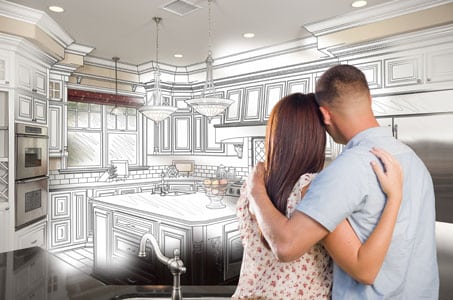The decision to file for
bankruptcy is a significant and serious one, and should only be made with the advice of an experienced
bankruptcy lawyer. For many homeowners, the most significant question is whether it is possible to remain in their homes once they have filed a
bankruptcy petition.
Whether a homeowner’s residence can be retained in bankruptcy depends on several factors.
Mortgaged Property in Chapter 7 and Chapter 13 Bankruptcies
As you may already know, two types of bankruptcy proceedings are potentially open to individuals. In a Chapter 7 case, subject to certain exemptions, the debtor’s property is sold and the proceeds are distributed to creditors. Property not given as collateral for a loan is surrendered directly to the trustee.
Real estate subject to a mortgage is not surrendered directly, but the lender (a “secured” creditor) will be permitted to foreclose. If there are foreclosure sale proceeds in excess of what is due to the mortgage holder, those amounts are distributed to credit card companies, medical care providers and other “unsecured” creditors. Most often, however, unsecured creditors recover only a small percentage of what they are owed.
In a Chapter 13 case, the debtor agrees to a long term (usually three years, but sometimes as long as five) plan. The plan requires the debtor to continue making his or her full monthly mortgage payment. A portion of the debtor’s remaining income is then distributed to unsecured creditors. The debtor may also be allowed to repay accumulated arrearages over time.
The intent is to keep the mortgage debt current and, over the life of the plan, pay unsecured creditors a larger portion of what they are owed than they would expect to receive in a Chapter 7 case.
Chapter 7 vs. Chapter 13: The Choice Is Not the Debtor’s Alone
Until about ten years ago, the debtor could freely choose between these two options. Concerned that Chapter 7 bankruptcies were being abused to the detriment of unsecured creditors, Congress amended the Bankruptcy Code to require a prospective Chapter 7 filer to demonstrate he or she lacks the means to make payments under a Chapter 13 plan. Individuals who do not satisfy this so-called “means test” must file a Chapter 13 petition.
Debtors who satisfy the Chapter 7 means test may nevertheless still elect to file under Chapter 13. While Chapter 7 may seem to be the obvious choice in all cases, Chapter 13 may be preferable for a homeowner debtor with significant equity in his or her home.
Here’s why
In a Chapter 7 bankruptcy, the trustee will receive only the foreclosure sale proceeds in excess of what is owed to the mortgage lender, and then only to the extent that excess is greater than the exemption provided for in the Code and state law. While a Chapter 13 debtor continues to pay down his or her mortgage balance, a Chapter 7 homeowner debtor who has significant equity in his or her home may be forced to sell the home and pay the excess to the trustee.
On the other hand, debtors who have a choice between Chapters 7 and 13 must also consider whether they can afford their mortgage payments. In theory, a Chapter 13 plan must be feasible to be approved by the court, but individuals may nevertheless feel unable to keep their mortgage payments current. In this instance, filing under Chapter 7 may be a better option, even though it may mean loss of the family residence to foreclosure.
